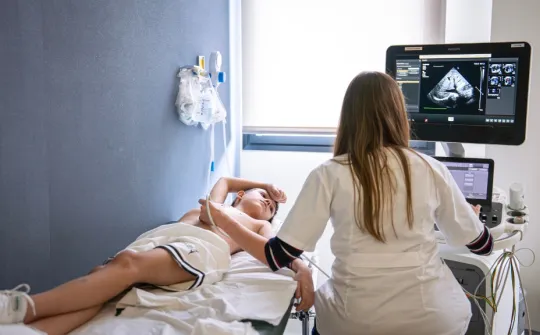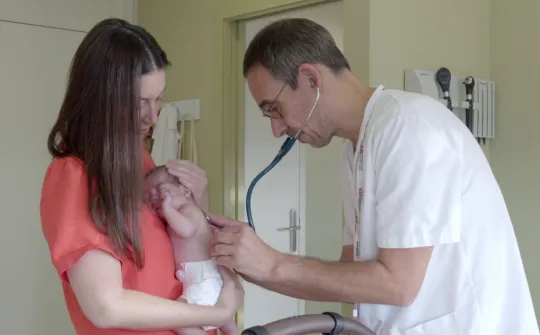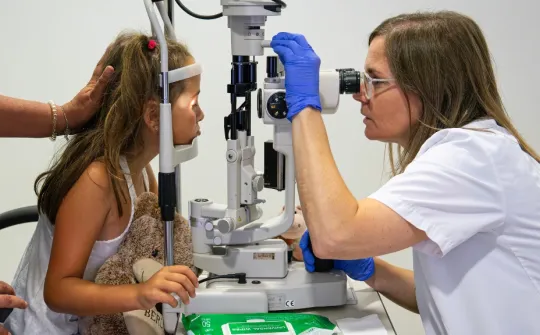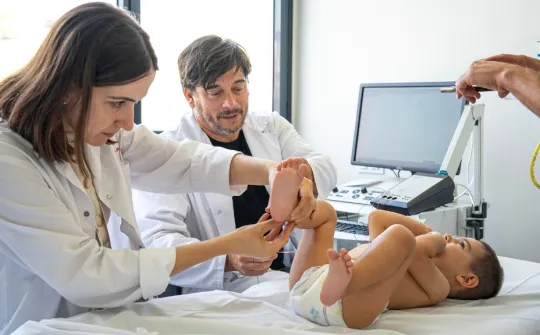Sant Joan de Déu-Barcelona Children’s Hospital presents the case of a baby born from a mother without ovaries
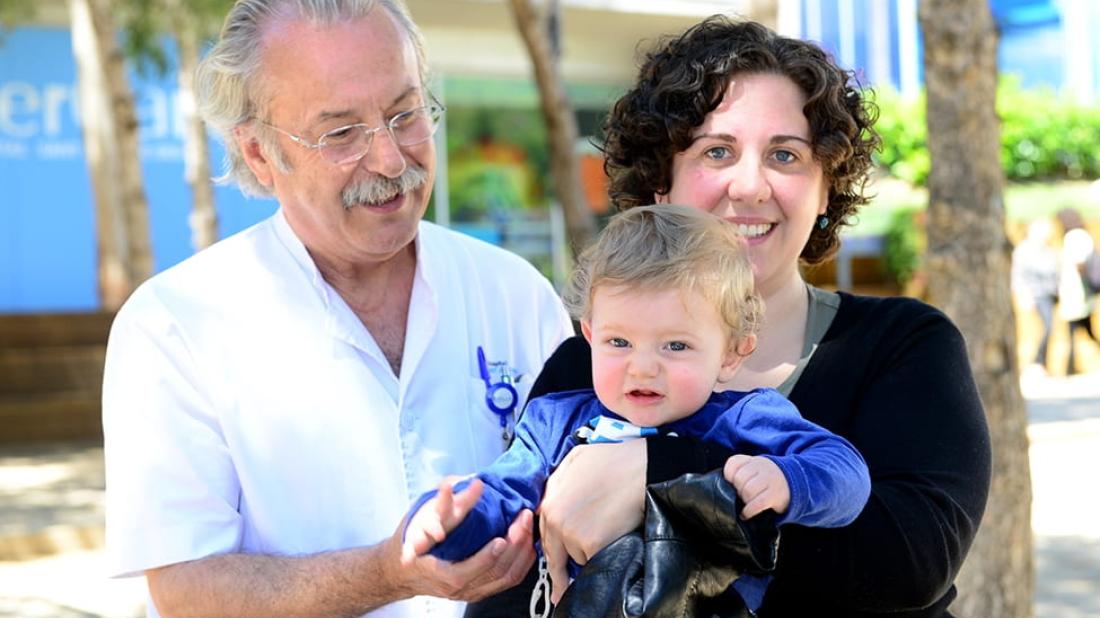
A multidisciplinary team of Sant Joan de Déu-Barcelona Children’s Hospital, led by Dr. Justo Callejo, Clinical Head of the Gynaecology and Obstetrics Service, has presented the case of a baby born from a patient who was successfully impregnated after reimplantation of ovarian tissue taken from her before removing her ovaries, which had contained tumours.
A multidisciplinary team of Sant Joan de Déu-Barcelona Children’s Hospital, led by Dr. Justo Callejo, Clinical Head of the Gynaecology and Obstetrics Service, has presented the case of a baby born from a patient who was successfully impregnated after reimplantation of ovarian tissue taken from her before removing her ovaries, which had contained tumours.
The case presented is that of a 31 year-old woman who was diagnosed ten years ago for tumours in both ovaries, requiring their surgical removal. During the operation a small portion of healthy ovarian tissue was taken and cryopreserved, that is to say, frozen and stored, according to the fertility preservation protocol for cancer patients in place at the hospital since 2001.
The ovarian tissue was kept at the Blood and Tissues Bank for 10 years until the patient expressed the wish to become a mother in June 2011, when an autotransplantation of the ovarian tissue was performed on her. In this operation, two small incisions or “buttonholes” were made, one on each side of the uterus in a place near the ovaries’ natural location. These “pockets” were filled with thawed fragments of the patient’s own ovarian tissue. In the application of this technique, which had been previously performed by other leading institutions in the world, the medical staff of Sant Joan de Déu-Barcelona Children’s Hospital introduced an innovation, adding some growth factors extracted and prepared from the patient’s own blood to favour tissue revascularisation.
In October 2011, four months after the autotransplantation, the woman spontaneously showed signs of ovarian activity (mammary pressure, vaginal discharge, etc.) and her hormone levels were those typical of a woman of her age. In the following month she had her first spontaneous menstruation in 10 years.
The doctors of the Gynaecology Service then began the process of ovarian stimulation according to a protocol resembling the one applied in an in vitro fertilization cycle. An embryo was obtained on the first attempt and transferred to the uterine cavity. Two weeks later an ultrasound confirmed pregnancy and in June 2012, after 39 weeks of gestation, a healthy baby boy of 3,500 grammes in weight was born by Caesarian section.
Ovarian tissue transplantation programme
Sant Joan de Déu-Barcelona Children’s Hospital became a pioneer with the start-up of an ovarian tissue transplantation programme for the preservation of fertility.
In recent years, new chemotherapy and radiotherapy treatments have brought about a substantial increase in the survival of young women and girls with cancer – up to a rate of nearly 80% – but this has often led to a loss of ovarian function, jeopardising the patients’ reproductive capacity.
